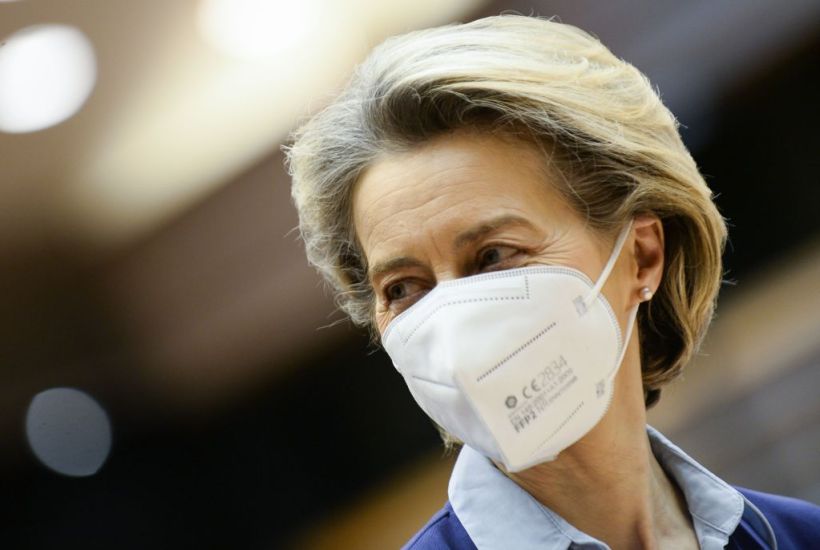The contracts were badly drafted. The orders were late. Too few resources were made available for the scale of the task, and the regulators dithered and delayed. Even the most fanatical federalists such as Guy Verhofstadt have admitted the EU’s vaccine programme was little short of a catastrophe. But hey, what does that matter? Ursula von der Leyen has decided this is the moment to double down on the EU’s Covid-19 strategy, and launch a centralised vaccine passport. What could possibly go wrong? Well, er, as the EU’s vaccine fiasco has taught us, lots actually.
Von der Leyen has today tried to bounce back from her difficulties with the vaccine programme with a plan for EU-wide Covid passports. She told German lawmakers the Commission was planning a ‘digital green pass’ that would either say you have had the vaccine, or the results of a Covid test. With your papers all in order, like in the old war movies, you will then be able to move freely around the continent.
And yet is that really a good idea? Let’s leave aside for the moment the embarrassing lack of actual vaccines in the EU – so far the bloc has only administered 7 jabs per 100 people, compared to 31 in the UK, and 10 in wealthy and technologically advanced countries such as, er, Morocco or Turkey – which would seem to undermine the whole project. After all, you won’t be able to get your ‘green pass’ until you have actually had a shot of the vaccine, or at least a test, and the latter will expire within a few days. Still, presumably sooner or later that will be fixed. Even so, there are still two bigger problems.
First, vaccine passports will be a tricky technical challenge. And yet, as we saw with the single currency, and more recently with vaccine procurement, the EU has a very bad habit of taking command of huge swathes of public policy but without the means, the skills, or the resources to actually deliver. It is easy to say you will launch vaccine passports, design the blue and gold logo, and come up with some stirring slogans about ‘unity’ and ‘solidarity’. Making sure they actually work, that people can get them, and they can’t be forged, is another matter.
Next, there is an issue of trust. Vaccine passports are going to be a difficult sell, especially in sceptical countries such as France. Do people really want to show a medical pass every time they go to a bar, or a theatre or the gym? Even in countries with a tradition of ID cards that may be hard to justify. Yet it is a lot easier to trust your national government than it is a remote bureaucracy in Brussels. There has to be a real danger that people simply refuse to carry the pass. If so, the scheme will simply collapse.
In truth, vaccine passports are a difficult, controversial issue. If we need them at all – and that is open to debate – then surely it would make more sense to leave them to national governments. They are more likely to work, people are more likely to support them, and countries could simply recognise each other’s passes, in the same way we accept Canadian or Japanese passports when people land at Heathrow. Von der Leyen has made another big grab for power for the Commission – but it is likely to blow up as badly as the last one did.
Got something to add? Join the discussion and comment below.
Get 10 issues for just $10
Subscribe to The Spectator Australia today for the next 10 magazine issues, plus full online access, for just $10.





















Comments
Don't miss out
Join the conversation with other Spectator Australia readers. Subscribe to leave a comment.
SUBSCRIBEAlready a subscriber? Log in